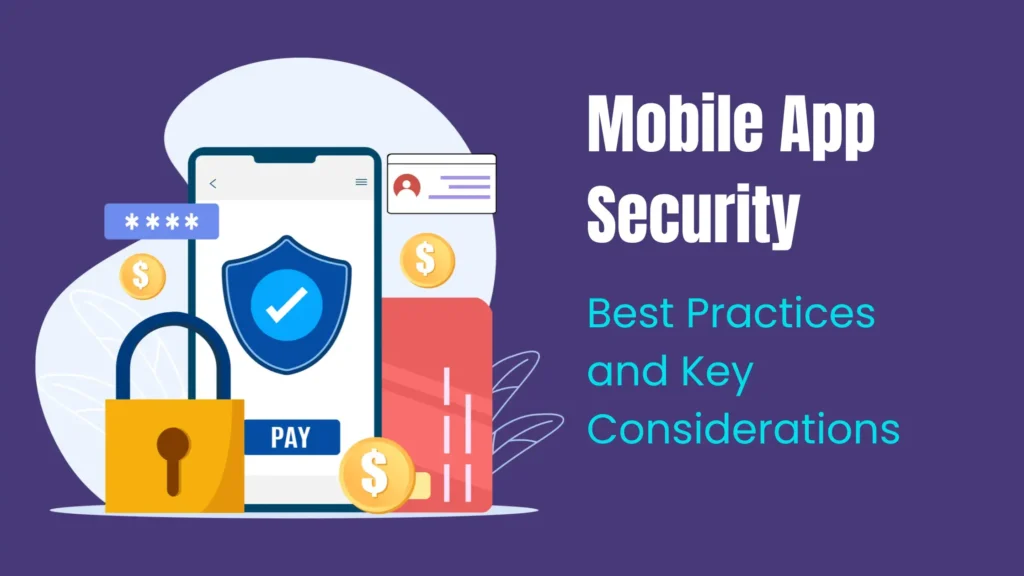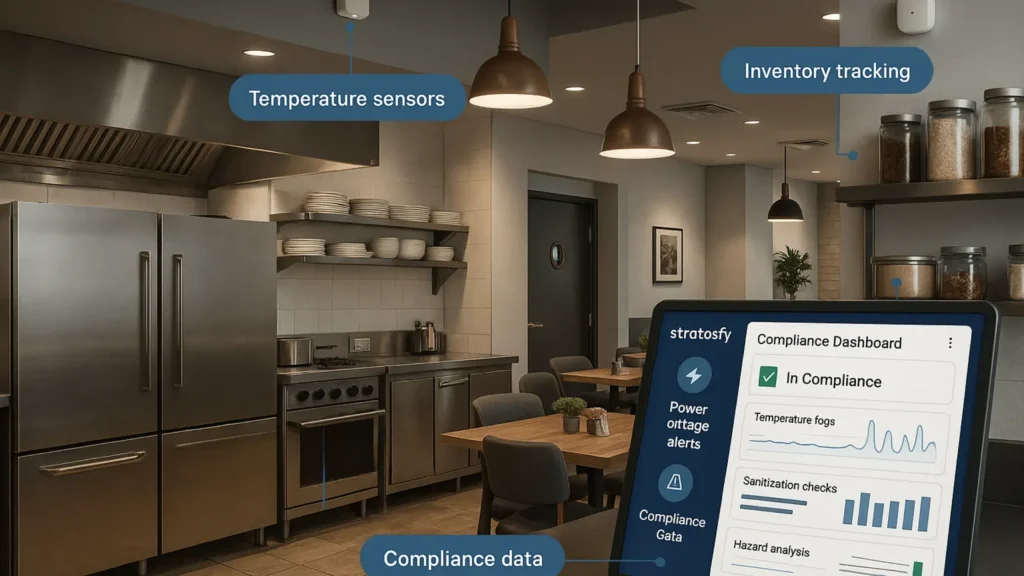In today’s digital landscape, mobile app security is a critical pillar of trust and reliability for users and businesses. The repercussions of security breaches extend far beyond mere inconvenience, encompassing potential data leaks, financial losses, and reputational damage.
This article aims to delve into the intricacies of mobile app security, shedding light on best practices and critical considerations that can safeguard app users and preserve business integrity. By exploring the fundamentals of mobile app security and its implications, we seek to equip readers with actionable insights to fortify their apps against evolving cyber threats.
Understanding Mobile App Security
Understanding the objectives and principles of mobile app security is essential to ensuring robust security. The primary goal of mobile app security is to protect sensitive user data, maintain the app’s integrity, and safeguard user privacy. Fundamental principles include authentication, authorization, and encryption.
Mobile apps face a wide range of threats and vulnerabilities. Common threats include unauthorized access, data breaches, and malware attacks.
Vulnerabilities can arise from insecure data storage, weak authentication mechanisms, or inadequate input validation. It is crucial to be aware of these vulnerabilities and proactively address them.
Integrating security throughout the app development lifecycle is vital. This includes conducting thorough security assessments during the planning and design phases, implementing secure coding practices, and performing frequent security testing.
Developers can mitigate security risks by identifying and addressing them early in the development cycle, reducing the likelihood of security breaches in the final product. Regular updates and patch management are also essential to address emerging vulnerabilities and protect against evolving threats.
By integrating security throughout the development lifecycle, app developers can provide users with reliable and resilient experiences while maintaining their trust.
Best Practices for Mobile App Security
When it comes to secure app development, following best practices is essential to protect user data and ensure the integrity of mobile applications. Here are five critical practices to consider:
Implementing strong authentication and authorization mechanisms, such as multifactor authentication and biometrics, is crucial to verifying user identities and preventing unauthorized access. Additionally, properly configuring user authorization levels ensures that users only have access to the necessary functionality and data.
- Proper Data Storage and Encryption Techniques: Sensitive user data should be stored securely and encrypted to safeguard against unauthorized access. Utilizing encryption algorithms for data storage and transmission prevents data breaches.
- Regular Software Updates and Patch Management: It is crucial to keep the app and its underlying software dependencies up to date. Regular updates and patch management ensure that known vulnerabilities are addressed promptly, reducing the risk of exploitation by malicious actors.
- Secure Coding Practices and Input Validation: Following secure coding practices, such as adhering to coding standards and avoiding common vulnerabilities, helps prevent issues like injection attacks and buffer overflows. It is essential to implement input validation to thoroughly check and sanitize user-supplied data to mitigate the risk of injection attacks and data manipulation.
- Implementing Secure Network Communication Protocols: Secure communication protocols, such as HTTPS or Transport Layer Security (TLS), help protect data exchanged between the app and its backend servers. It ensures that data is encrypted and securely transmitted, safeguarding against interception and tampering.
By incorporating these best practices into the development process, app developers can establish a strong security foundation, mitigating the risk of data breaches, ensuring user privacy, and providing a trustworthy user experience.
Importance of User Privacy and Data Protection
User privacy and data protection have become critical considerations in app development due to growing concerns about the misuse and mishandling of personal information. Ensuring user privacy and complying with data protection regulations is paramount for ethical and legal reasons.
Respecting user privacy entails implementing practices that prioritize user control and consent over their data. App developers should obtain explicit consent from users before collecting personal information, ensuring that users understand how their data will be used and allowing them to opt out if desired.
Transparent data usage policies should be provided, clearly explaining what data is collected, how it is stored, and who has access to it.
Other crucial aspects include the secure handling and storage of user data. App developers must employ robust encryption techniques to protect data during storage and transmission. Sensitive user information, such as passwords or financial details, should be hashed and salted to prevent unauthorized access.
Regular security audits, vulnerability assessments, and adherence to industry standards can help identify and address potential vulnerabilities in data storage systems.
Compliance with data protection regulations, such as the General Data Protection Regulation (GDPR) and the California Consumer Privacy Act (CCPA), is vital. These regulations establish guidelines for collecting, storing, and using personal data, giving users greater control over their information. Failure to comply with these regulations can result in significant legal and financial consequences for businesses.
App developers can foster trust, enhance user satisfaction, and safeguard sensitive information by prioritizing user privacy and data protection. Proactive measures to protect user privacy demonstrate a commitment to ethical practices and contribute to the long-term success and reputation of the app and its developers.
Managing Third-Party Dependencies and Integrations
As mobile apps become increasingly complex, many developers depend on third-party libraries and APIs to augment their functionality. While these third-party dependencies can add value, they pose significant security risks. Therefore, managing third-party dependencies and integrations is critical to secure app development.
App developers should begin by carefully assessing the security of third-party libraries and APIs before integrating them into their apps. This assessment should include evaluating the security and reputation of the provider, as well as auditing the third-party code for potential vulnerabilities. This ensures that the third-party dependencies align with the app’s overall security goals and do not pose a risk.
Secure practices should be followed when implementing external services to minimize potential security threats. Developers should closely manage the shared data with external services, specify access control to minimize potentially dangerous actions, and avoid embedding sensitive data into third-party requests.
App developers must also track the interfaces exposed by third-party APIs and libraries, as any weaknesses in these interfaces can jeopardize the mobile app’s security.
Regular updates and patch management of third-party dependencies are vital. As vulnerabilities are identified and patches issued, app developers must apply updates to protect against potential exploits. Failing to update third-party dependencies can leave the app vulnerable to attacks and data breaches.
In conclusion, managing third-party dependencies and integrations is integral to app development. By evaluating the security of third-party libraries and APIs, implementing secure practices, and keeping third-party dependencies updated, app developers can minimize potential security risks, safeguard sensitive data, and ensure the integrity of their mobile apps.
Conducting Security Testing and Audits
Regular security testing and audits are essential for ensuring the robustness and security of mobile applications. These practices help identify vulnerabilities and weaknesses early in development, allowing for timely remediation and strengthening security measures.
A critical aspect of security testing is penetration testing. This involves simulating real-world attacks to identify vulnerabilities and weaknesses in the app’s infrastructure, network, or applications.
It helps uncover potential entry points for attackers and allows developers to take proactive measures to mitigate risks. Penetration testing can be conducted both during the development phase and after the app is deployed to ensure continuous security.
Another essential form of security testing is code review. It involves manual or automated analysis of the app’s source code to identify coding errors, vulnerabilities, and deviations from secure coding practices. By reviewing the code, app developers can spot potential security flaws or weaknesses that may compromise the app’s integrity or expose sensitive user data.
Performing security audits is also vital for app developers. These audits comprehensively examine the app’s architecture, infrastructure, and security controls to identify potential gaps or vulnerabilities.
Security audits can be conducted internally by the development team or by engaging external security experts specializing in app security.
The audits should encompass various aspects, such as data storage and encryption, network communication, authentication mechanisms, and access controls.
By conducting regular security testing and audits, app developers can proactively identify and address potential security vulnerabilities, reducing the risk of data breaches and unauthorized access.
Secure Deployment and App Store Considerations
Several considerations are essential for ensuring secure deployment when deploying a mobile app on app stores. App developers must comply with app store guidelines and security requirements, adhering to the specified standards. This includes following secure coding practices, implementing robust authentication mechanisms, and encrypting sensitive data.
Regularly monitoring for security vulnerabilities and promptly addressing any identified issues is crucial. Secure app update processes should also be in place, ensuring that updates are only sourced from trusted channels and using secure protocols.
By prioritizing secure deployment practices, app developers can mitigate risks, protect user data, and maintain a strong reputation in the marketplace.
Continuous Monitoring and Response to Security Threats
Continuous monitoring involves real-time monitoring of app activities, network traffic, and system logs to detect any suspicious or unauthorized behavior. This allows for the early detection of security incidents and prompt action to mitigate potential risks. Monitoring tools and techniques may include intrusion detection and prevention systems, log analysis, and network monitoring.
In addition to monitoring, it is crucial to establish a well-defined incident response plan. This plan should outline the steps for a security breach or incident. It should include procedures for containing the incident, investigating its cause, and restoring the security and functionality of the mobile app.
Incident response plans should also involve communication strategies to ensure that affected parties, such as app users or stakeholders, are promptly informed about the incident and any necessary actions they should take.
App developers should stay updated on the latest security vulnerabilities and attack techniques to respond to security threats effectively. This involves actively monitoring security forums, news outlets, and vulnerability databases to identify emerging threats.
By staying informed, developers can proactively implement security patches or updates to address vulnerabilities before they can be exploited.Regular security assessments and audits can also help identify potential weaknesses or vulnerabilities in the app’s security defenses for improvement.
Conclusion
These practices ensure the integrity and trustworthiness of mobile applications. Critical mobile app security best practices include:
- Conducting regular security testing and audits.
- Complying with app store guidelines.
- Implementing secure deployment processes.
- Continuously monitoring for threats.
- Having a proactive incident response plan.
Looking to shape your business with Mobile App Security? Everite Solutions specializes in helping companies to strategize and achieve their goals. Our expert team of consultants can guide you in leveraging the power of custom software to shape your business effectively. Visit our website, www.everitesolutions.com, to learn more about our custom software consulting services. Contact us at email id info@everitesolutions.com and our mobile number +1 404-835-1605 to schedule a consultation and discover how Everite can help shape your business’s future.







